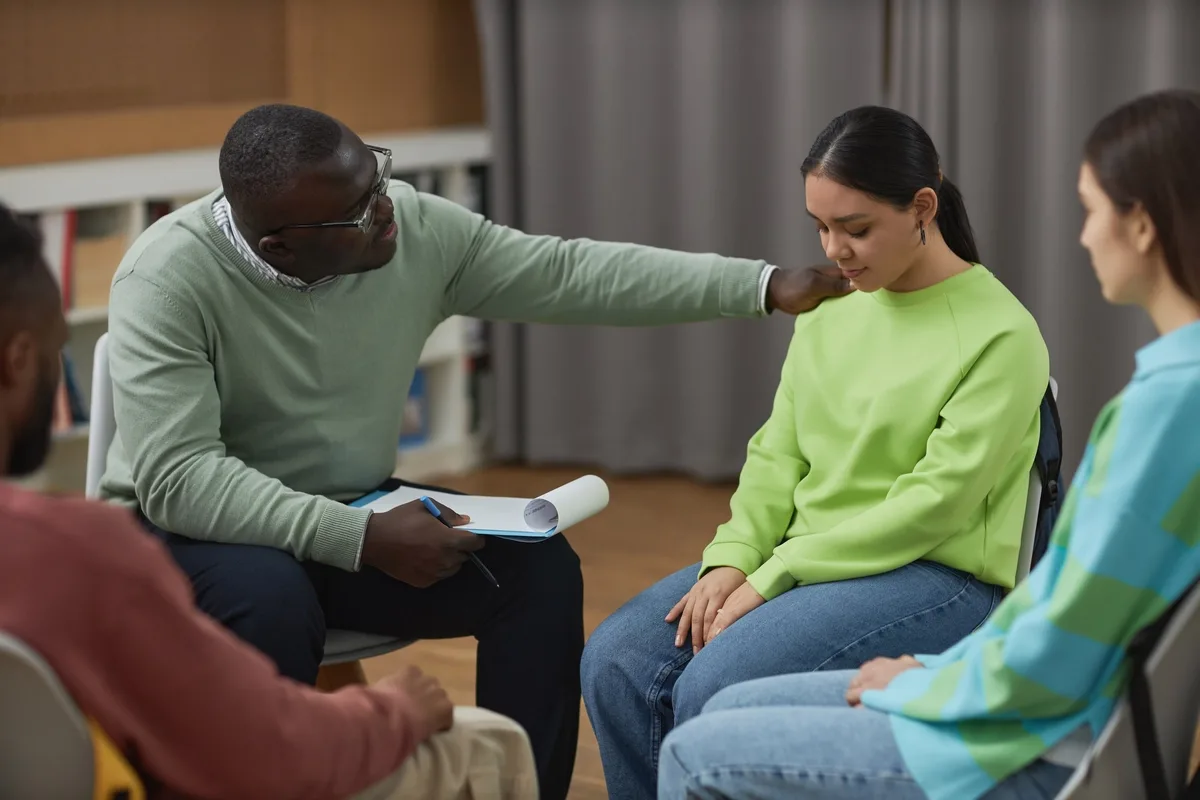24/7 Helpline:
(866) 899-221924/7 Helpline:
(866) 899-2219
Learn more about PTSD Treatment centers in Butte
PTSD Treatment in Other Cities

Other Insurance Options

Highmark

Excellus

Ceridian

Oxford

Ambetter

Covered California

PHCS Network

CareSource

Health Net

Aetna

BHS | Behavioral Health Systems

ComPsych

Horizon Healthcare Service

Coventry Health Care

UMR

BlueCross

Providence

WellPoint

Holman Group

CareFirst


















